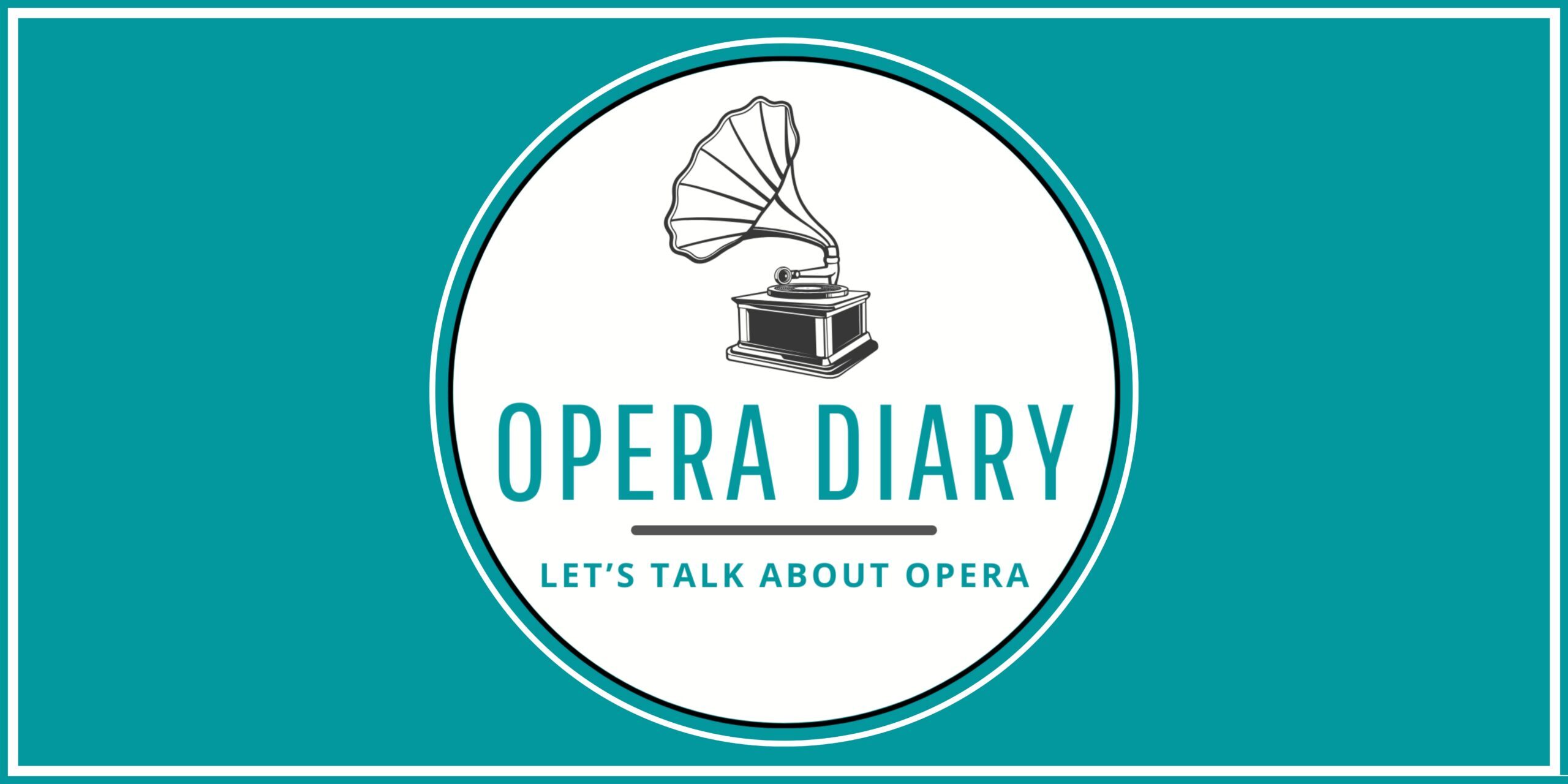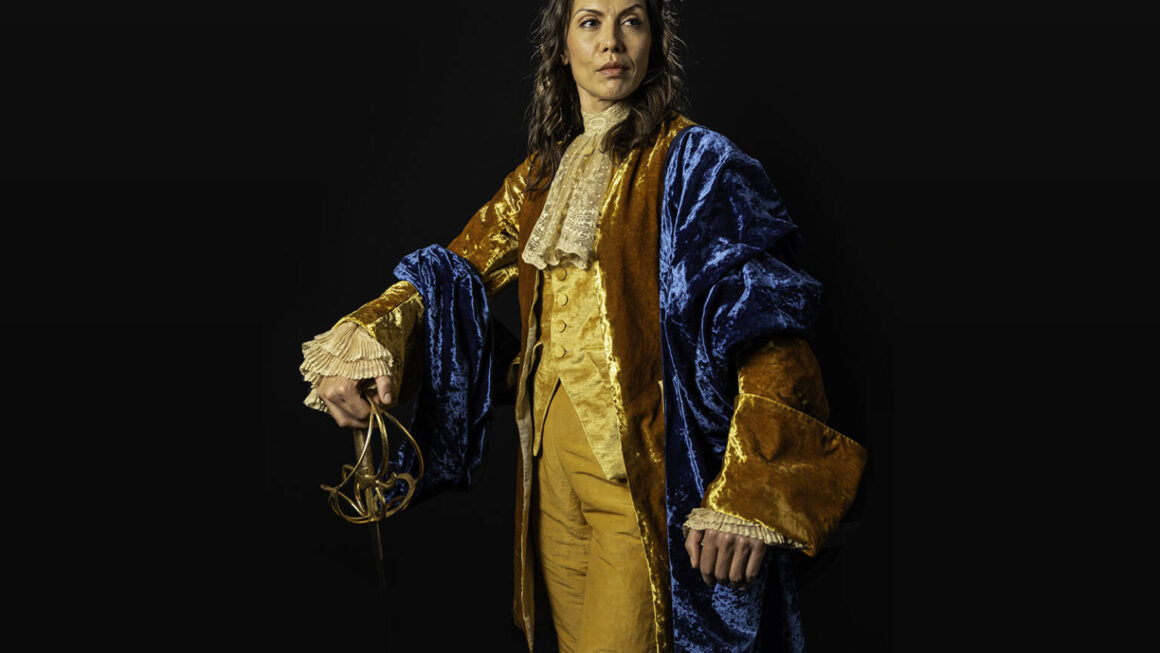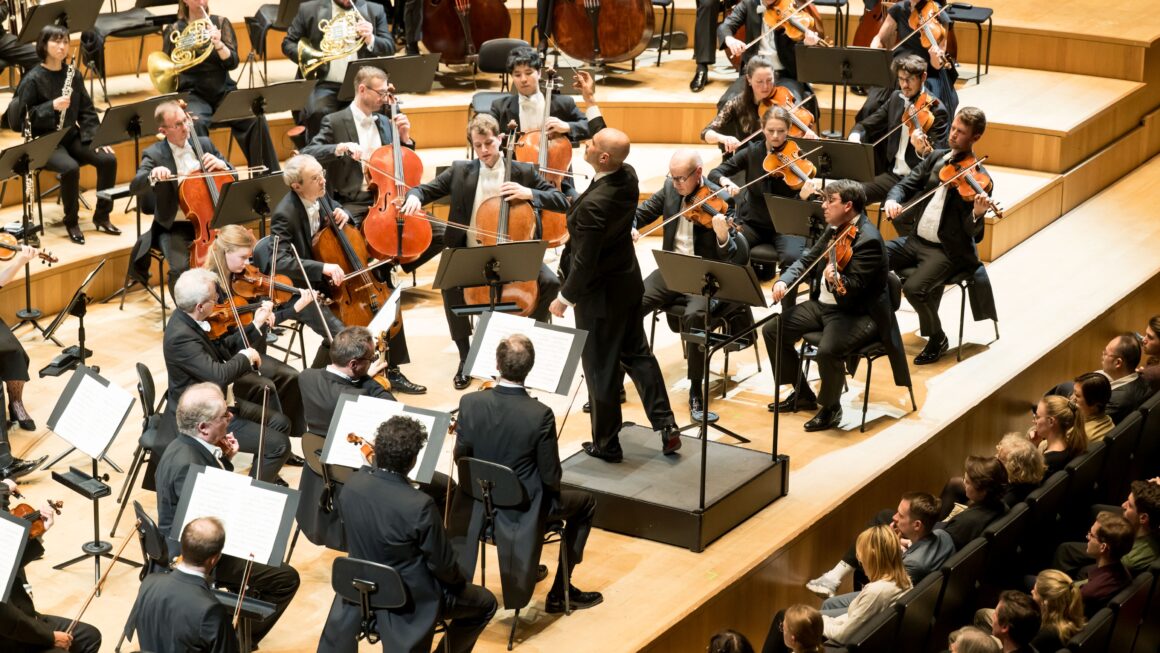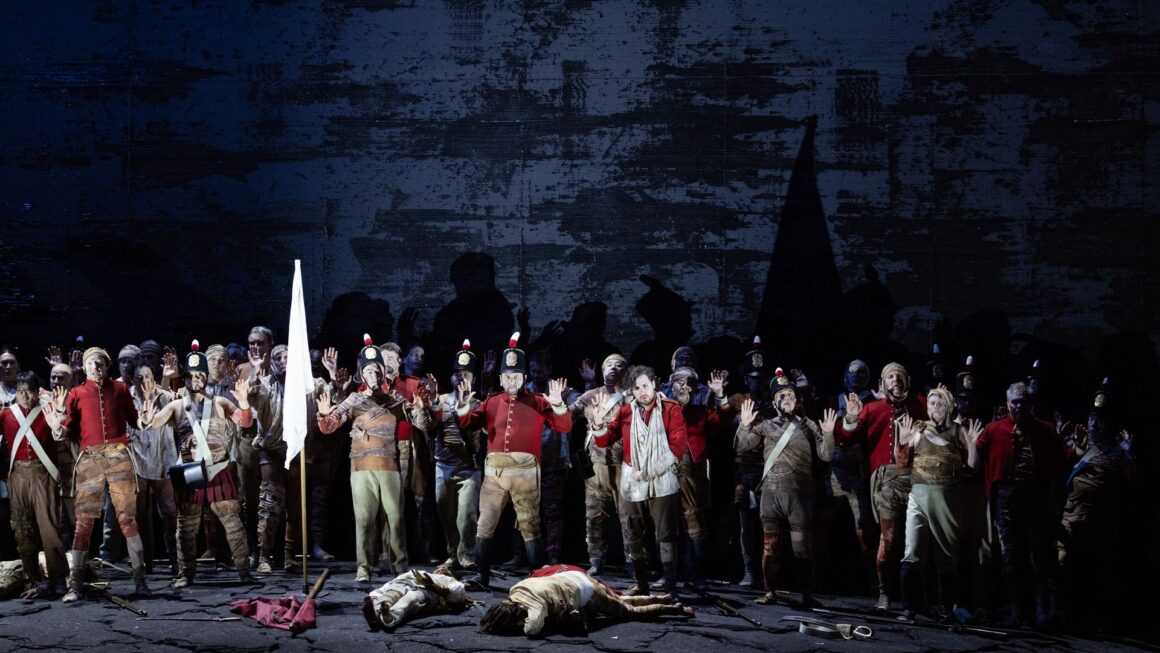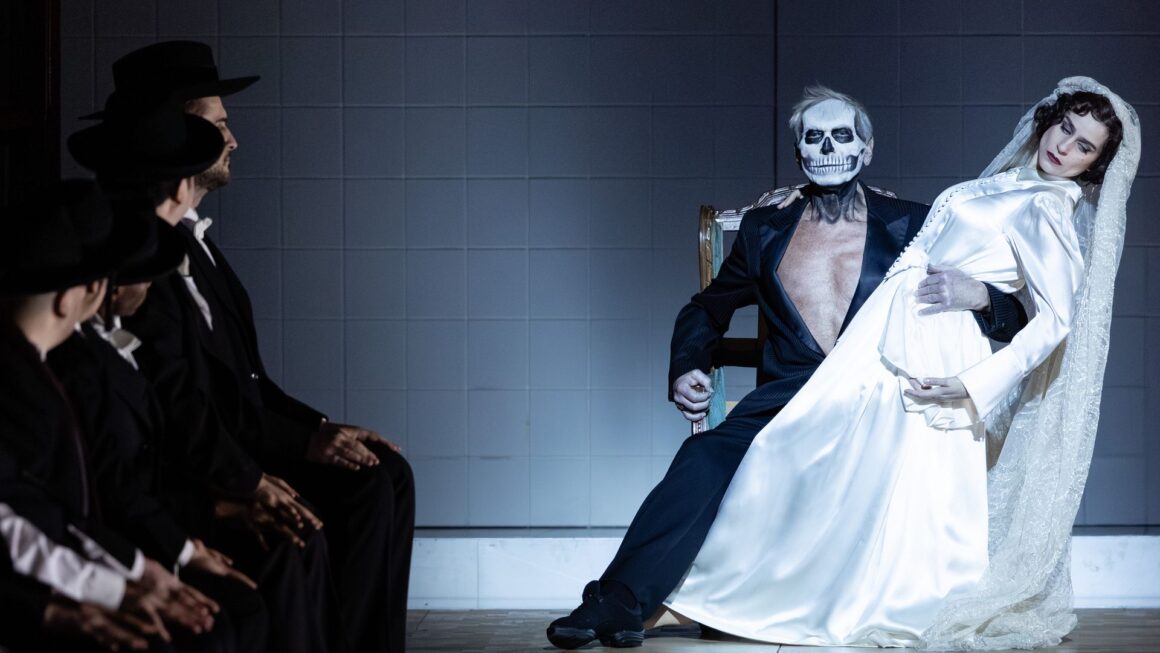This isn’t a Claude Chabrol film, but you could call the Théâtre du Châtelet’s new production Orlando ou une affaire de femmes. Do you want avant-garde in the guise of Baroque opera? Do you want to see a work that distinguishes itself from the entire output of one of the greatest composers of the 18th century? Be sure to go and see it!
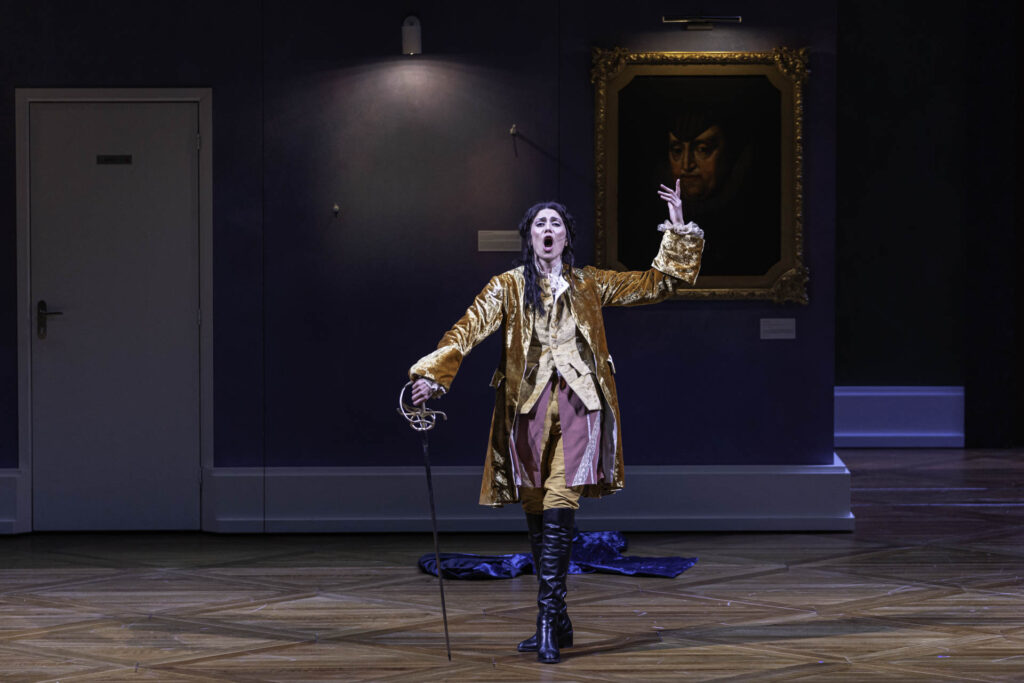
Une affaire de femmes because only one character (not the least important, admittedly) is played by a man. The female tenderness and mischief are exalted by a reading that is sometimes surprising (particularly at the end of Act I, during the superb trio Consolati, o Bella), but not devoid of interest. Because it plays with androgyny in an intelligent, amused way, while respecting the principle of the work. Avant-garde because, while throwing a veil of irony over the characters’ affairs, Handel creates music of scintillating power, equal to the strength of the feelings that drive them. Singular in comparison with other Handelian works for various reasons; let’s mention the remarkable personalities of the title role (a melancholy, unloved, clumsy knight who is entitled to a scene of madness at the end of Act 2, the sumptuous Ah! stigie larve, ah! scelerati spettri! and a prodigiously beautiful sleep scene in Act 3) and Zoroastro (a magician and manipulator who plays with the characters’ destinies… and with whom we come to sympathise throughout the opera).
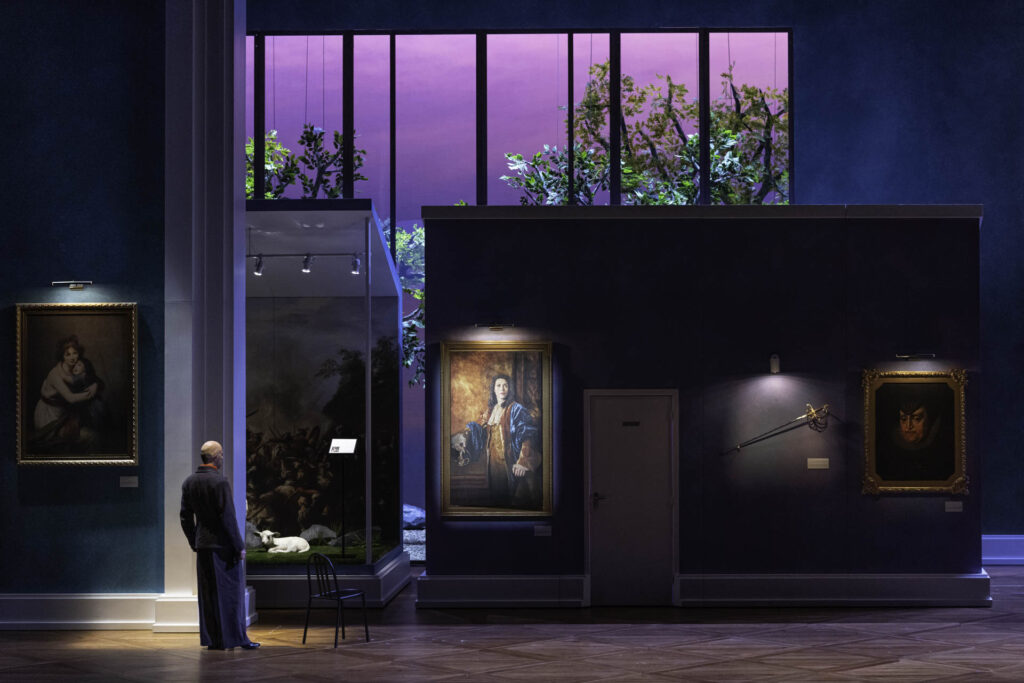
The intrigue works like an Andromaque against a backdrop of war: Orlando (Katarina Bradić), a noble knight, loves Angelica (Siobhan Stagg), Queen of Cathay, who loves Medoro (Elizabeth DeShong), an African prince, who is loved by Dorinda (Giulia Semenzato), a young shepherdess. Unsurprisingly, Orlando becomes enraged when he learns that Angelica’s chosen one is not him. To find a way out of his jealousy, he enlists the help of the magician Zoroastro (Riccardo Novaro). The staging is designed by Jeanne Desoubeaux. Despite a feeling of déjà vu (Night at the Museum, Laurent Pelly’s historic staging of Giulio Cesare in Egitto… by the same Handel) and some surprising scenic choices (such as in Act 3) for an audience expecting to see a full-scale opera seria, the production is not lacking in style and there is never a dull moment.
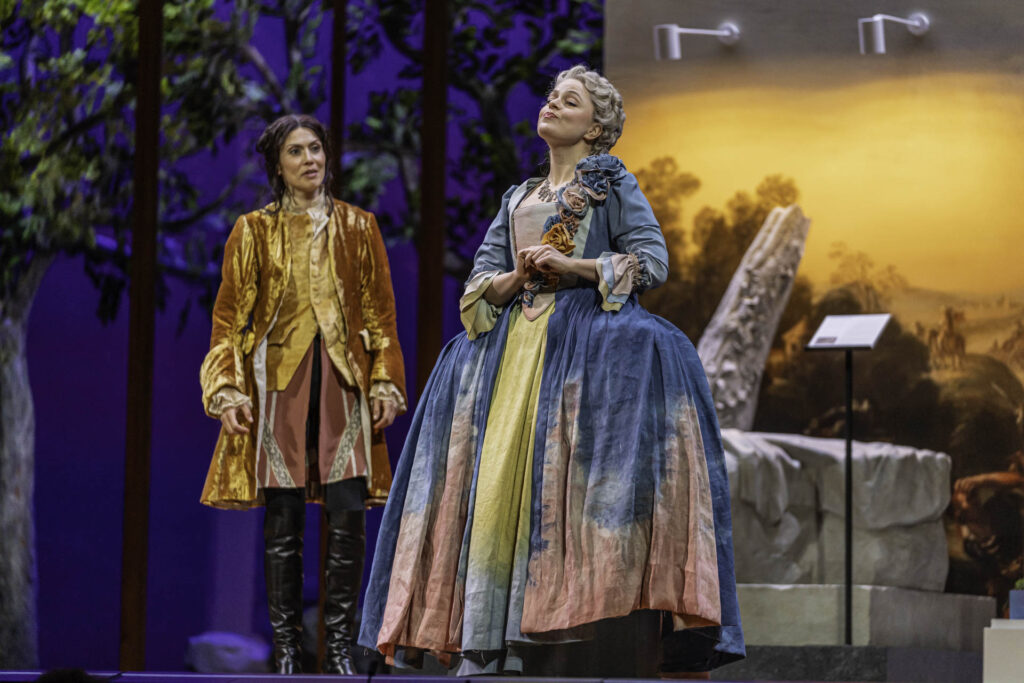
Another good reason to go: this is the first time that (the great) Christophe Rousset and Les Talents Lyriques play this opera, with unprecedented finesse and meticulous attention to the various nuances of the score. All the more reason for us to appreciate the beauty of one of the ville lumière’s most elegant theatres.
Casting: Orlando (Katarina Bradić), Angelica (Siobhan Stagg), Medoro (Elizabeth DeShong), Dorinda (Giulia Semenzato), Zoroastro (Riccardo Novaro). Musical direction by Christophe Rousset. Les Talents Lyriques Orchestra. New production by the Théâtre du Châtelet, in coproduction with the Théâtre de Caen, the Opéra National de Lorraine and the Théâtres de la ville de Luxembourg.
